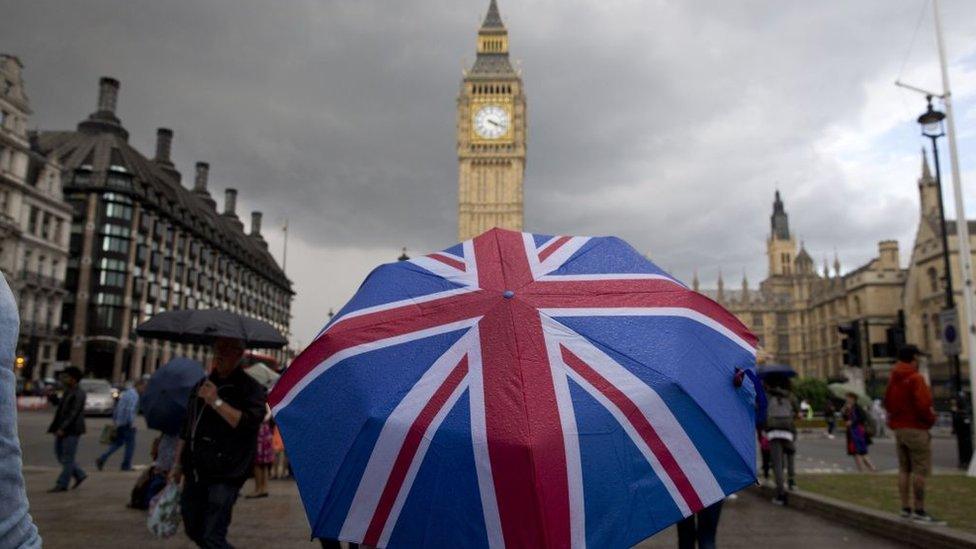Brexit: The UK has officially left the EU - what happens next?
- Published
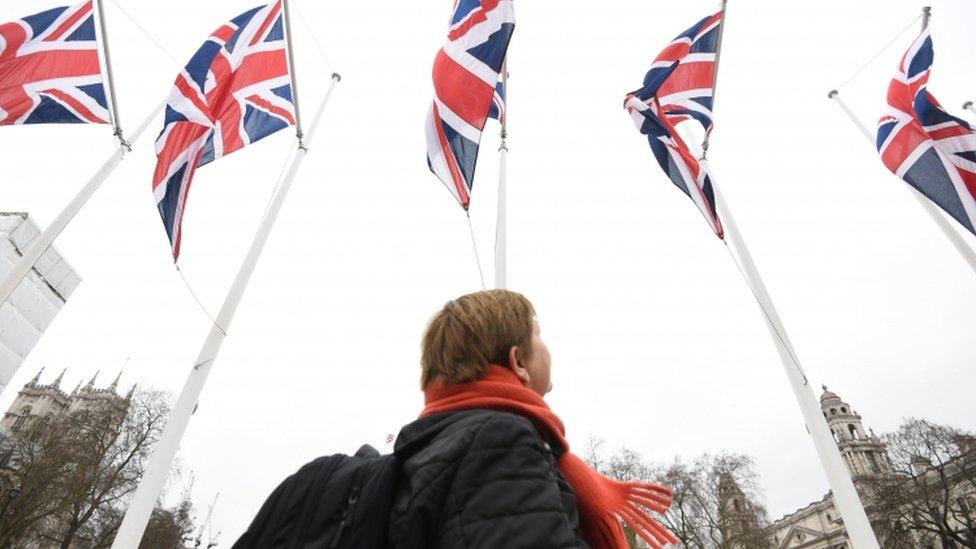
Union jack flags were raised up flagpoles on Parliament Square to mark Brexit Day
It's official - the UK has left the European Union.
A cause for celebration for some, a sobering moment for others. The UK formally ended its EU membership at the stroke of midnight on Friday in Brussels, 23:00 GMT in London.
A projection of a countdown clock in Downing Street marked the occasion.
Prime Minister Boris Johnson has hailed the "dawn of a new era", promising "real national renewal" after 47 years of EU membership.
With the divorce now sealed, one chapter of Brexit has come to an end. The next, however, has only just begun.
This is where we are now.
What will change?
At first, not much.
An 11-month transition period has begun and the UK will largely stick to EU rules.
The really big changes will come when that transition ends. But the EU really is now a club of 27 members and not 28.
In other words the UK stays for now in the EU's customs union and single market. That means the same trade rules and free movement of goods and services. Freedom of movement for people stays the same and the EU's top court still has jurisdiction.
But there will be no more British voices in the European Parliament and no British ministers at EU meetings where big decisions are made.
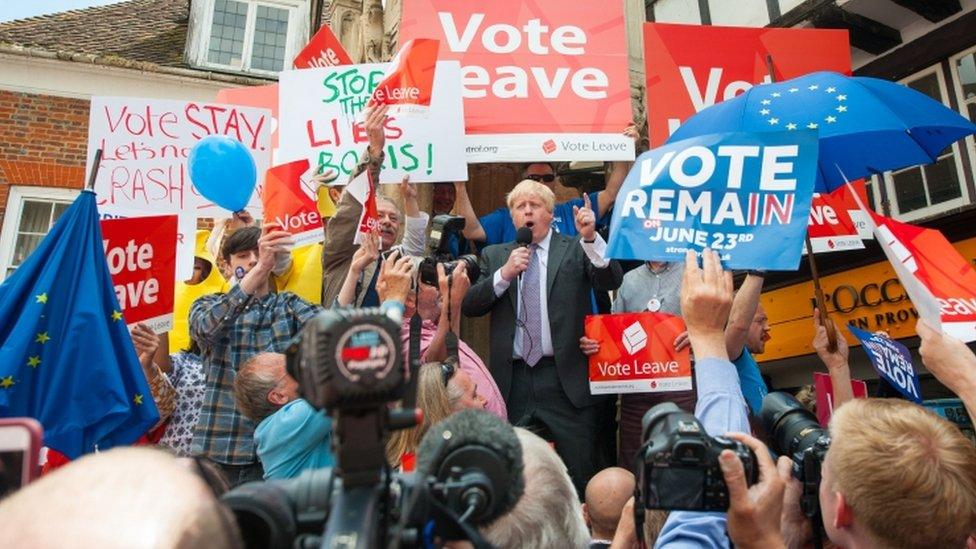
Boris Johnson was one of the leading campaigners for the Brexit movement ahead of the 2016 referendum
Instead, the UK will try to agree a different economic partnership with the EU and forge new ones beyond.
President Donald Trump has already dangled a "massive" trade deal.
What does it mean for me?
If you're British you are no longer an EU citizen. But for now you can still travel around the EU as freely as before.
The same goes if you're an EU citizen in the UK.
But after the transition period, which the UK vows will end on 31 December 2020, immigration rules will change for UK and EU citizens.
Guillermo is Spanish, but UK-born and raised - he fears for the future
The 3.5 million EU nationals in the UK have until June 2021 to apply to an EU Settlement Scheme, but if there's no deal on future ties the deadline is the end of this year.
The 1.3 million UK citizens in the EU may need to apply for residence status.
After transition, the UK is planning a points-based immigration system, which will affect anyone, whether from the EU or not.
UK citizens will be able to visit the EU for up to 90 days at a time, but they will need a visa waiver, which will cost €7 (£6.30).
What happens now?
The UK and EU will use the next 11 months to negotiate a new relationship. Few on the EU side believe that is long enough, including EU Commission President Ursula von der Leyen, but Boris Johnson has vowed to do so.
They want a free trade agreement that sets out the terms of trade, employment standards and environmental rules and other issues between the UK and the EU.


New arrangements on security, travel and immigration will need to be agreed too.
No-deal Brexit: How might it affect the EU?
Trade deals usually take years, so if the two sides get to the end of 2020 without an agreement, brace yourselves for a possible "no-deal Brexit". If that happens, the UK could face higher food prices and disruption to medicines and other goods. It would trade with the EU on terms set out by the World Trade Organization, and that means tariffs.
How did we get here?
The UK joined what was then the European Economic Community in 1973 and had a referendum backing the decision two years later.
As the bloc expanded and became the European Union, it became a political as well as economic bloc.
Objections grew among some politicians to the idea of "ever closer union among the peoples of Europe", which was agreed by the EU in 1992.
But it was not until the Conservative Party decided to hold a new public vote that leaving the EU became a possibility. That became known as Brexit.
An "advisory" referendum was held on 23 June 2016. Leave won by a close margin of 51.9% to 48.1%.
Three years of rancorous EU-UK negotiations on the divorce terms followed, and the UK government struggled to get the Withdrawal Agreement through Parliament.
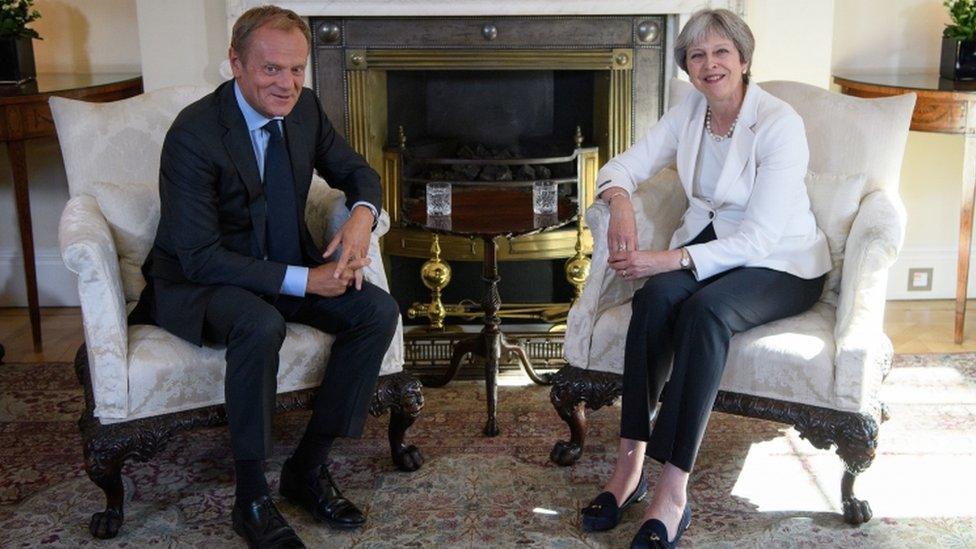
Theresa May, pictured here with Donald Tusk former president of the European Council, was unable to pass her Brexit deal
It all changed when Boris Johnson took over as leader of the Conservatives and won an election in December 2019, giving him the numbers to push the deal through Parliament.
What is the Withdrawal Agreement?
The main points are:
outlining how the UK will pay the EU for the £39bn "divorce bill", external
scrapping the law that took the UK into the EU, but reinstating it just for the transition period
proposing a plan to ensure frictionless trade between EU member Ireland and neighbouring Northern Ireland which is part of the UK
guaranteeing the rights of EU citizens living in the UK, with an oversight body to monitor their treatment
Under the UK's legislation on the Withdrawal Agreement, extending the 11-month transition is prohibited.
Will the UK's exit make much difference?
The UK was among the big players in the EU, and one of the big contributors after Germany and France. It paid an average net contribution of £7.8bn (€9.3bn; $10.2bn) a year into EU. So when it stops paying in at the end of 2020, there will be a sizeable gap in EU finances.
Tears, hugs and Auld Lang Syne in EU Parliament after Brexit vote
The UK's strong contribution to EU defence and foreign policy has been much welcomed by the other states and will certainly be missed.
No other EU countries are currently planning their own version of Brexit. In fact several states are trying to join.
For the EU and UK, the next 11 months are pivotal, but relations will never be quite the same. "Whatever agreement we reach on our future relationship, Brexit will always be a matter of damage limitation," the EU's chief Brexit negotiator Michel Barnier said this week.

- Published29 January 2020
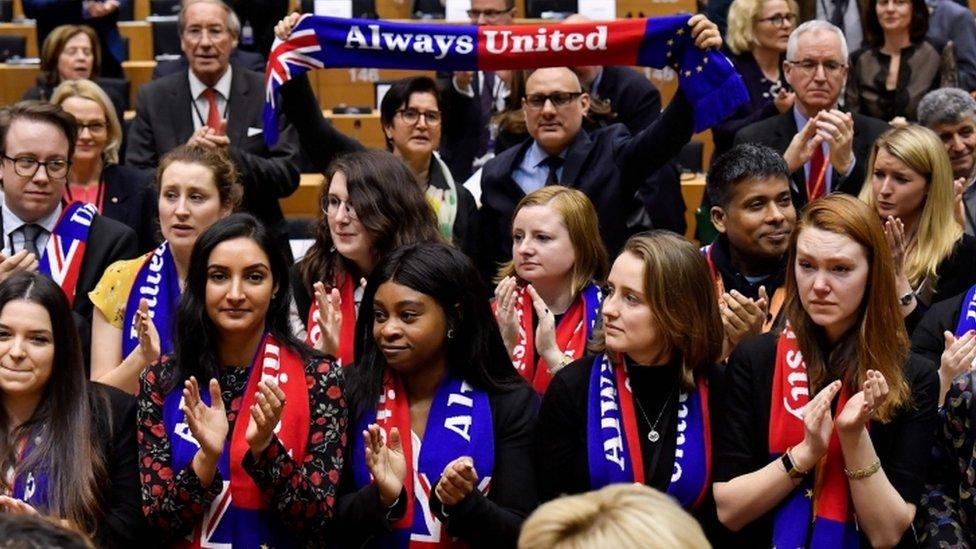
- Published31 January 2020
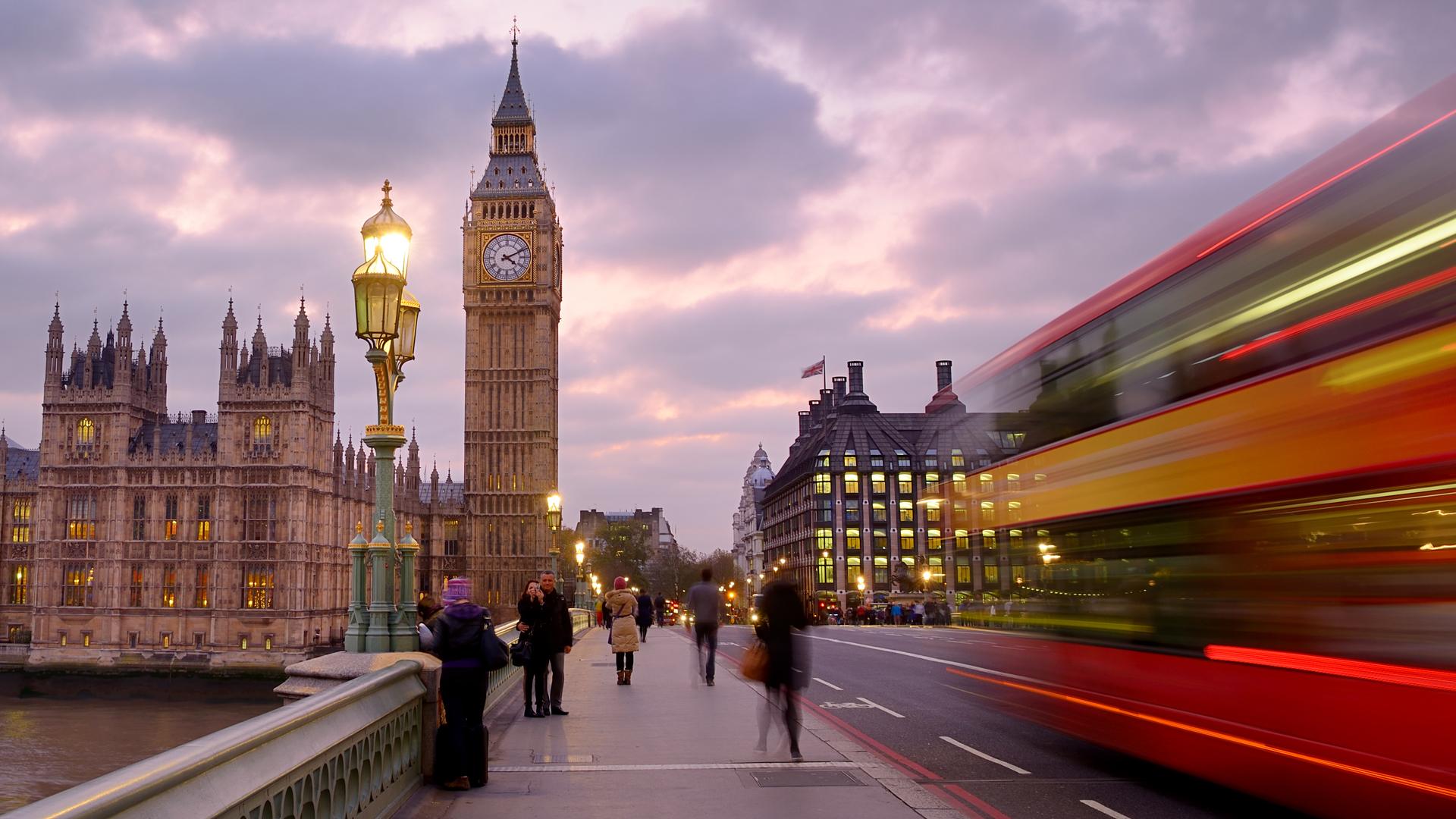
- Published1 February 2020
